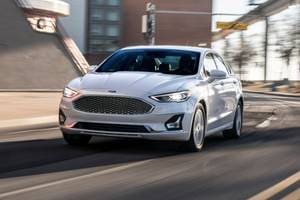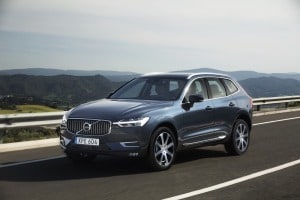Hybrid Buyers Do the Math and Don't Come Back
Only about 35 percent of hybrid vehicle owners bought another hybrid when they returned to market in 2011, according to an analysis by automotive research firm Polk of Southfield, Mich. Exclude the Toyota Prius and hybrid loyalty drops to under 25 percent.
The problem is that hybrids (as well as electric vehicles) generally don't make economic sense in terms of return on investment. Hybrid cars typically cost more than their gas-engine-only counterparts. A payback on the price premium can take years, depending on the difference in fuel economy on the hybrid versus its gas counterpart as well as the price of gas. The higher the price of gas, the quicker the payback is achieved. But even at $5 a gallon, Edmunds.com's analysis shows the return on investment can be lengthy.
The payback period has become more pronounced with the abundance of new cars on the market that achieve 30 miles per gallon and even 40 miles per gallon. Indeed, online cross-shopping data from Edmunds.com indicates that consumers are carefully comparing hybrids with similar gasoline-powered vehicles. As an example, the Honda Civic is the second most cross-shopped vehicle among shoppers for the hybrid-powered Toyota Prius and Honda Insight.
By Edmunds.com's count, 46 of 327 vehicles on sale in the 2011 and 2012 model years were capable of delivering 30 miles per gallon, combined city and highway fuel efficiency, according to the EPA's formula. That is a nearly 30 percent increase from mid-2011, when Edmunds.com compiled its first list of 30-mpg combined vehicles. In 2010, only one vehicle — the Smart ForTwo — achieved 40 mpg. Today the 40 mpg club is up to nine vehicles and growing. The 30 mpg and 40 mpg club will expand further in the future to include even larger, roomier cars.
"The lineup of alternate drive vehicles and their premium price points just aren't appealing enough to consumers to give the segment the momentum it once anticipated, especially given the growing strength of fuel economy among compact and midsize competitors," said Edmunds.com Chief Economist Lacey Plache. She added that consumer discomfort with unfamiliar technology and the lack of an adequate recharging infrastructure also are obstacles.
The lack of return hybrid buyers is bad news for automakers who are desperately trying to sell hybrid vehicles and other fuel advanced-technology vehicles, like electric cars. Hybrids, EVs and such still represent only a scant 3 percent of all vehicle sales in the U.S. Yet automakers are coming out with more of these vehicles all the time; Edmunds.com lists 51 hybrids and eight electric vehicles either currently on sale or hitting showrooms soon. And car companies must boost sales of such fuel-efficient vehicles to meet more stringent 2016 fuel-economy standards. Plus, auto companies are spending staggering amounts of money on these new, very expensive fuel-saving technologies, from which they are deriving little return, if any.
And worse, while automakers counted on higher gas prices pushing customers toward hybrids and such, Polk's research shows no such trend. Gas prices fluctuated from under $2 per gallon to nearly $4 per gallon during the period of 2008 to 2011, with little impact on hybrid segment loyalty, Polk said.
Also disconcerting is the fact that hybrid loyalty is not great even in the nation's most environmentally-conscious markets of California, Washington and Oregon. Polk found that consumers those markets, including the California cities of Los Angeles and San Diego as well as Portland, Ore. and Seattle, are no more loyal to hybrid vehicles than the nation at large. In fact, Los Angeles ranks last and under the national average of return hybrid buyers in the top 15 cities for hybrid vehicles. Floridians are the most loyal buyers of hybrid cars. West Palm Beach, Fla., had the most loyal hybrid buyers, with Orlando and Tampa, Fla., also in the top four of 15 cities analyzed by Polk. Phoenix was second.

On the plus side, however, the Polk data shows that hybrid owners are loyal to the brand when they return to the car market, so a hybrid can provide a halo effect on a brand's product line. In 2011, for instance, 60 percent of Toyota hybrid owners returned to the market to purchase another Toyota, according to Polk, while 41 percent of them purchased another hybrid from another brand. More than 52 percent of Honda hybrid owners stayed with the Honda brand, while just under 20 percent of this same owner group bought another hybrid vehicle from any brand, Polk said. "Having a hybrid in the product lineup can certainly give a brand a competitive edge when it comes to attracting new customers," said Brad Smith, director of Polk's Loyalty Management Practice.





